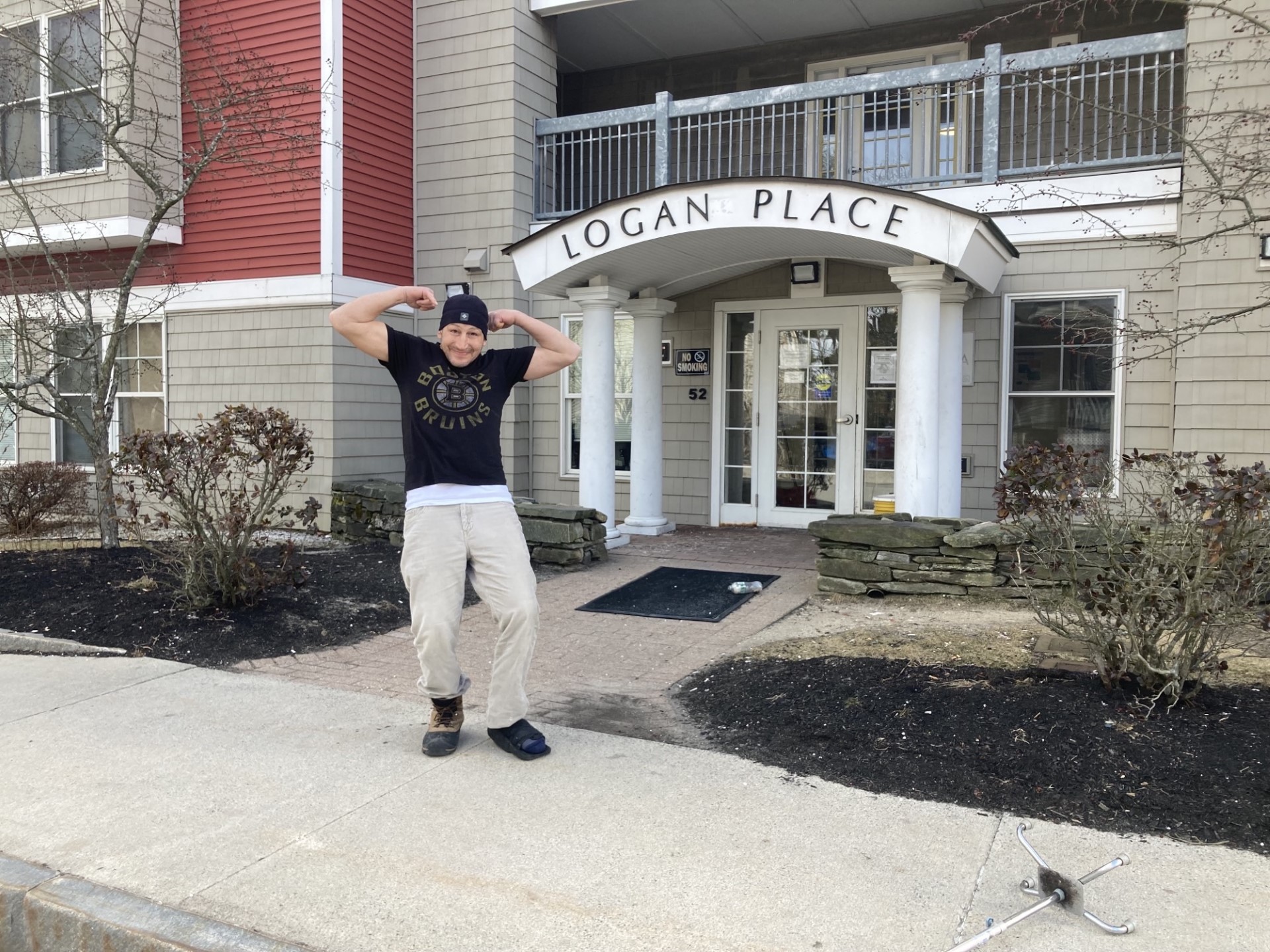For 14 years, Kabir was homeless in Portland. But today, he is safely housed at Logan Place, Maine’s first Site-based Housing First program which opened 19 years ago.
Kabir’s time on the streets was tough. “There is no break when you’re homeless. There’s no door to close,” he shared. Living outside led to numerous health issues and landed him at Maine Medical Center.
“I was hospitalized three times this year before I made it through to recuperative care and to this apartment. It gave me a place to heal and do other treatments. I feel like I’ve been given a clean slate and a whole new chance at life. It’s my doctor, it’s people like Dr. Rob [Fulton, Medical Director, Greater Portland Health, who provides leadership at the recuperative care site] and Britt [La Shier, Preble Street, Director of Social Services, Recuperative Care Program], it’s people that are there for me.”
A partnership between Maine Medical Center, Greater Portland Health, and Preble Street, Portland’s innovative recuperative care program provides a space for people experiencing homelessness to rest, heal, and connect with medical care and social work providers after being released from a hospital stay. The 15-bed program serves people with acute medical needs and most stays last approximately 4-6 weeks. In today’s housing crisis this is often not enough time to get someone into housing, but it is enough time to lay the foundation toward long-term stability and eventually a permanent home.
When Kabir entered recuperative care, he was already on the waiting list for one of Portland’s 85 existing Housing First apartments. The waiting list for this permanent housing is typically more than 100 people at any given time.
“All of us have a time when we needed another chance and that’s what recuperative care offered me,” adds Kabir.
Britt La Shier has known Kabir for several years. “Sometimes when folks are outside for so long, you are genuinely excited to see people in the hospital to get the treatment that they deserve or connected services.”
“I think a lot of people think that once a person is in Housing First that the job is done. But that’s really where the work begins – to get people medically stable or addressing a mental health or substance use disorder. With Kabir transitioning from recuperative care directly into Logan Place, he’s in a much healthier state than he was before and can benefit more from these first few weeks of housing.”
“Here at Logan Place, I’ve finally reached a place where I can live quietly and figure out how to reach more people to help – there’s a great need to help these people that are dropping into oblivion at an insane rate,” shares Kabir.
Avesta Housing and Preble Street collaborated on the first three Site-based Housing First properties in the state of Maine — Logan Place, which opened in 2005; Florence House (2010); and Huston Commons (2017). Avesta owns and operates the properties, and Preble Street provides 24/7 onsite support services, harm reduction, and crisis intervention to maximize housing stability and prevent returns to homelessness. Portland Housing Authority issues project-based Section 8 vouchers that are attached to every unit. In November 2023, thanks to legislation signed into law this year by Governor Mills to create a sustainable vehicle to develop Site-based Housing First programs across Maine, Avesta and Preble Street announced plans to provide for a fourth Site-based Housing First permanent housing on the site of the former Oxford Street homeless shelter in Portland.
“Housing is healthcare,” shares La Shier. “The more housing opportunities – whether into a substance use program or to transitional housing or permanent housing like Site-based Housing First – that we have paired with medical respite, the longer that people can have an extended life and a happier and healthier quality of life as well.”

“I feel great about the future. I’m grateful to have a platform to speak and maybe get through to somebody. I want to reach out and do peer support; I want to be able to give back.”
Learn more
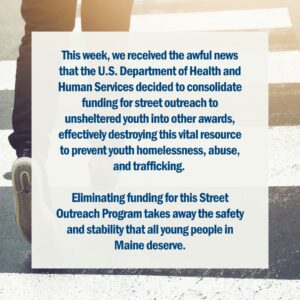
Statement on elimination of funding for Youth Street Outreach
On Wednesday night, we received the awful news that the U.S. Department of Health and Human Services decided to consolidate funding for street outreach to unsheltered youth into other awards, which we know effectively destroys this vital resource to prevent youth homelessness, abuse, and trafficking. Our youth Street Outreach Program (SOP) serves young people who
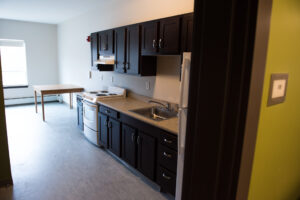
Bringing permanent supportive housing to Bangor
Earlier this year, Preble Street celebrated 20 years of permanent housing programs with 24-hour social work support. Could there be a better way to honor the impact of Logan Place, Florence House, and Huston Commons than to see the momentum towards similar programs across the state? Preble Street has been selected as the social service
Maine Needs and Preble Street Announce Partnership to Help More Mainers Meet their Basic Needs
Preble Street is excited to announce a new partnership with Maine Needs that will support both organizations’ goal to meet the basic needs of Mainers experiencing homelessness or who have recently moved out of homelessness. As of April 18, 2025, Preble Street will no longer accept individual in-kind, non-food donations. All clothing, hygiene, and household
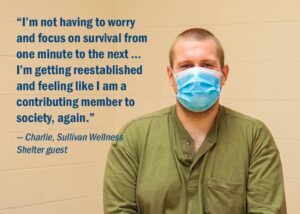
Five Years Later: How Preble Street’s Response to COVID-19 Shaped Its Future
During our 50 years in operation, Preble Street has had to adapt to changing needs and a shifting landscape many times. Never was this truer than in the days, months, and years that followed March 16, 2020. Five years ago this month, while the world was urged to stay home, a question loomed over staff
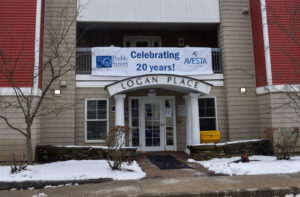
50 years of Compassion in Action – 20 years of 24/7 supportive housing
“I feel like I’ve got a new lease on life. I can now heal. I can stretch out these last years a bit,spend time with my mother and my daughter.” – Logan Place Tenant 20 years ago, on March 24, 2005, Preble Street and Avesta Housing opened Logan Place, the first permanent supportive housing program

We all need a safe place to call home
No one should have to live outside. Everyone regardless of who they are or where they come from needs a safe place to call home. There are hundreds of people experiencing unsheltered homelessness in Maine this winter, living outside in the cold… in parks, under bridges, beneath overpasses, and in many other places not meant
